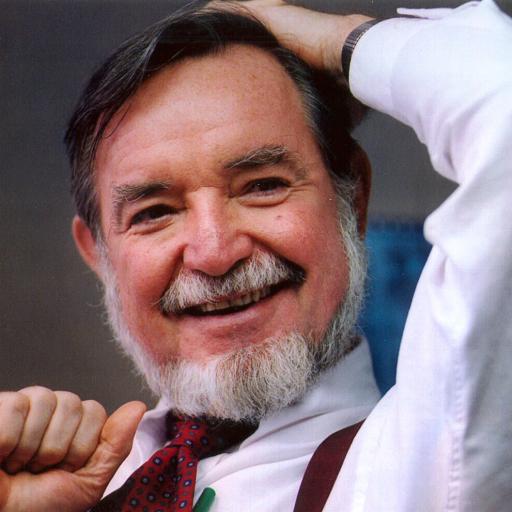
State or Province:
country:
USwhat are your gifts and talents?:
why do you want to join abcd in action?:
Enabling Productive Neighborhoods: The Role of a New Kind of Leader
Sal Alinsky, one of the Godfathers of neighborhood organizing, enjoyed asking people, “What is a leader.” Usually, no one gave the answer that he had in mind and he said, “A leader is somebody who has followers.” By that he meant that at least they were people who had vision, solutions, special skills and the ability to inspire.
There is another kind of leader who precipitates groups of productive citizens who have vision, solutions, skills and the ability to inspire. Henry Moore, who was the Assistant City Manager of Savannah, Georgia was a great example of the second kind of leader.*
Henry had been administering block grant programs designed to improve neighborhoods by spending several million dollars. However, as time passed he felt that the improvements that he implemented faded away and that residents had been taught to depend on him for neighborhood improvement. Even though he had spent millions, he found that the money and his programs had little lasting effect.
In 1993 Savannah won an award of $20,000 dollars as an exemplary city. There were no strings attached to the money. Henry could spend it any way he chose.
Reflecting on his position, he felt he had been acting as “King Henry,” the ruler of failed efforts. Therefore, it occurred to him that if he could find a way to take off his crown and place it on the heads of neighborhood residents, they might do a better job than he of neighborhood improvement.
He decided that one way to transfer the crown would be to reward neighbors for engaging in productive activity that improved their neighborhoods. Therefore, he sent a letter to the households in the lowest income section of Savannah. The letter said that he appreciated the work neighbors had been doing and wanted to support them in their improvement initiatives. They could receive this support if they wrote him a one-page letter describing an initiative on their block that would improve the life of the residents. He asked them to identify what they would do, how they would do it, who would do it and the result they wanted to achieve. Then, he said, if they needed any money in addition to what they were going to do, he had up to $100 that he could contribute to the effort and they should indicate what they needed any money for. Then, they also needed to add to their letter the names of at least two other residents who would be involved in the initiative.
That year, he received 70 letters describing productive local activities. No one asked for the entire $100. (So, you know that no agency was applying). The proposals would say that they needed $63.22 to buy canvass and thread to create a family flag for each household.
At the end of the year, Henry Moore invited all of the neighborhood producers to a grand dinner at the finest hotel in Savannah. He urged each little group to create a display describing their initiative and to bring it to the hotel where it could be set up in a large display room. These displays gave all the participants an opportunity to see a diverse set of additional possibilities for their own neighborhood.
The dinner celebrated all the participants. The mayor spoke and awards were given to a few groups who undertook outstanding initiatives. As Henry looked out across the room with more than 200 productive neighbors, he observed, “Now I have found the real leaders in Savannah. I am their servant and tonight they were crowned.”
This collegial meal was followed by morning sessions in which the local leaders were invited to begin making decisions about what they were going to do next year. And he indicated that he could make it possible for them to have $500 or less if they undertook a more ambitious activity. He also arranged for them to have training opportunities in community development if they thought that would be helpful.
Five years later when they held the annual neighborhood celebration for productive leaders, there were 715 people in the room – each having been involved in a small team creating a better life on their block.
During the fifth year, I visited Henry Moore and he said, “Let’s go out and you can see the neighborhood.” We got in his car and as he was driving he said, “Tell me when we get to the neighborhood.” I said, “I don’t think I can do that because I’ve never been there.” “You’ll know when we get there,” Henry said. And I did know.
I could see all the new trees, flowers, block signs, banners, newly painted houses. I could not see the newly engaged young people, the city newspaper articles describing the renewed activity in the neighborhood, the local associations that became involved in initiatives, the greatly increased participation of residents in city planning and development activities. And I could not see the immense pride that had emerged throughout the neighborhood.
Henry learned that on every block there were neighbors who believed they could make things better and knew the other people who would join them. Henry emerged as a new kind of leader who inspired local residents to inspire each other to envision and implement the work of productive citizenship.
Henry Moore has passed on but his legacy has spread around the world. His students have learned how to “lead by stepping back.” **
* For a detailed description of his work see: City-Sponsored Community Building: Savannah’s Grants for Blocks Story workbook by Deborah Puntenney and Henry Moore (1998).
** Henry Moore describes his transformation in: Leading by Stepping Back: A Guide for City Officials on Building Neighborhood Capacity by Henry Moore and Deborah Puntenney (1999).
